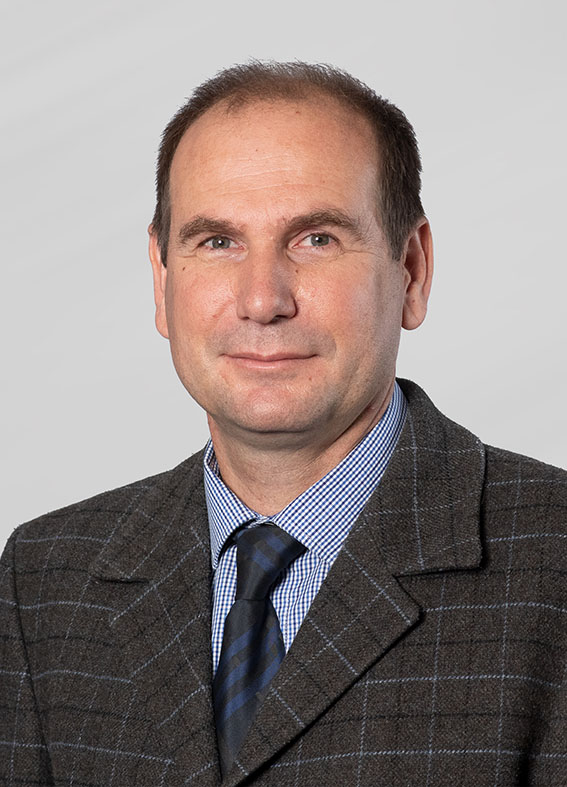Nuclear technology is a powerful instrument, and research has shown that it can have a significant impact on disease prevention and treatment. An extraordinary professor at the North-West University (NWU) and specialist in nuclear technology – in radiochemistry in particular – is one of 44 leading scholars and scientists to be inaugurated as new members of the Academy of Science of South Africa (ASSAf).
Prof Jan Rijn Zeevaart, general research manager in Applied Radiation at the South African Nuclear Energy Corporation (Necsa) and lecturer at both the Mahikeng Campus and Potchefstroom Campus of the NWU, considers it a great honour to be counted among the best researchers in the country.
“I have been driven throughout my career to use excellent research as the basis for driving innovation that will ultimately benefit society. The application of science is very close to my heart, although some of my best science outputs have been fundamental work.”
Prof Zeevaart says he has been blessed with opportunities to expand his horizons and connected him to universities for the development of new drugs (radiopharmaceuticals) from bench to bedside.
Becoming less dependent on imports
“Through the new Nuclear Medicine Research Infrastructure (NuMeRI) facility in which the government’s Department of Science and Innovation (DSI) has invested heavily, we are poised to make a big contribution to drug development in our country. This will enable us to become less dependent on pharmaceutical imports and capitalise on the current phenomenal growth in the radiopharmaceutical and nuclear medicine market worldwide.”
He is a firm believer in the saying by poet WH Auden that “Those that will not reason, perish in the act. Those who will not act, perish for that reason.” Prof Zeevaart says this has guided his professional career and defines his leadership style.
A career dedicated to radio chemistry
Prof Zeevaart is a bio-inorganic chemist who specialises in radiochemistry and radiopharmacy. One of the products he developed in the late 1990s was iodine-131. This is a radioactive isotope (meaning one of two forms of the same element) of iodine that is used in nuclear medicine procedures to diagnose and treat thyroid conditions. Iodine-131 still earns more than R150 million in foreign currency annually.
“There was no university in South Africa that offered PhD studies in radiochemistry. I wanted to change this. Necsa decided to start the Centre for Applied Radiation Science and Technology (CARST) together with the NWU in Mahikeng, and I joined the team in 2010 as an extraordinary professor to promote radiochemistry in the country.”
He also became involved with the Preclinical Drug Development Platform (PCDDP) on the NWU’s Potchefstroom Campus in 2014, where he expanded his work in radiochemistry to include new molecules (radiopharmaceuticals) for preclinical tests.
Prof Zeevaart is currently still working primarily in applied radiation at Necsa. He is also the chief scientific officer of NuMeRi and lectures at both the NWU and the University of Pretoria.
More about the ASSAf
With the dawn of democracy in South Africa, ASSAf started to address the need for an Academy of Science entity in 1996.
The Parliament of South Africa passed the Academy of Science of South Africa Act (Act 67 of 2001), which came into force in 2002. This made ASSAf the only academy of science in South Africa officially recognised by the government and representing the country in the international community of science academies and elsewhere.
Members of ASSAf are nominated and selected annually through a final vote by the full existing membership, all of whom are leading scientists and researchers. Being chosen is considered exclusive recognition of scholarly achievement and excellence. The addition of the latest cohort of members brings the total membership of ASSAf to 730.
For more information on ASSAf visit: https://www.assaf.org.za/

Prof Jan Rijn Zeevaart
